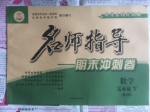
What she said made me _____ very angry.
A. feel B. to feel C. felt D. Feels
A
【解析】
试题分析:句意:他所说的使我们感到非常的生气。根据动词短语make sb do表示是某人做某事,结合句意,故选A
考点:考查非谓语动词。
考点分析: 考点1:动词和动词短语 就是表示动作和状态的词。根据其在句中的功能,动词可分为四类,分别是:实义动词、系动词、助动词、情态动词。 动词分类及用法 一、实义动词 实义动词又叫行为动词,分成及物动词和不及物动词 。 1、及物动词是必须带宾语的动词,可分为如下两类。 1) 及物动词+宾语例:I love my home. 我爱我家。 He bought an English dictionary. 他买了一本英语词典。 2) 及物动词+间接宾语+直接宾语例:She taught us maths. 她教我们数学。 My mother gave me a new pen. 母亲给了我一支新钢笔。提示:常用的能接双宾语的及物动词有:give, teach, buy, lend, find, hand, leave, sell, show, read, pay, make, offer, build, pass, bring, cook等。 2、 不及物动词不及物动词不需要跟宾语,本身意义完整。例:She came last week. 她上周来的。 It is raining hard. 正下着大雨。 Class began at half past seven. 7点半开始上课。 What happened yesterday? 昨天发生了什么事? 3、同一动词有时可用作及物动词,有时可用作不及物动词。例如:She can dance and sing. 她能唱歌又能跳舞。(sing在此用作不及物动词。) She can sing many English songs. 她能唱好多首英文歌曲。(sing用作及物动词。) 二、系动词 系动词不能单独作谓语,后面必须跟表语构成合成式谓语。表语通常由名词、形容词,或相当于名词或形容词的词或短语等充当,说明主语是什么或怎么样。连系动词有 be, seem, look, become, get, grow, feel, appear, remain, turn。 例如: The story sounds true. Those oranges taste good. 三、助动词 协助主要动词构成谓语动词词组的词叫助动词。 助动词自身没有词义,不可单独使用,只能在实义动词和系动词前构成谓语的时态、语态以及否定式和疑问式。它没有对应的汉译,例如: He doesn't like English. 他不喜欢英语。 (doesn't是助动词,无词义;like是主要动词,有词义) He is singing. 他在唱歌。(is是助动词,无词义,构成现在进行时) 四、情态动词 情态动词是一种本身有一定的词义,表示说话人对有关行为或事物的态度和看法,认为其可能、应该或必要等,不能单独作谓语,情态动词后面加动词原形。情态动词无人称和数的变化, 情态动词后面跟的动词需用原形,否定式构成是在情态动词后面加 "not"。常用的情态动词有 : Can(could) (能,会) 如:I can swim. 我会游泳。 May(might) (可以) 如: You may go now. 你现在可以走了。 Must (必须) 如:You must do your homework. 你必须写作业。 Need (需要) 如:He needs our help. 他需要我们的帮助。 注意:1、情态动词表推测在肯定句中一般用must (一定),can, could(可能),might /may(也许,或许)。否定句中用can’t / couldn’t(不可能)。例如: It can’t be the headmaster. He has gone to America. 这不可能是校长,他去美国了。 2、can和could表示允许的用法:表示现在的允许时,若是请求别人允许自己做某事,两者均可用,但用could 语气更委婉;若是自己允许别人做某事,一般只用 can,而不用 could。如: Can [Could] I come in? 我可以进来吗? 3、must和have to的用法 表示必须、必要。(must表示主观多一些而have to则表示客观多一些)如: You must come in time. 你必须及时过来。 回答must引出的问句时,如果是否定的回答,不能用mustn't,而要用needn't或don't have to。 — Must we hand in our exercise books today? — Yes, you must. (No, you don’t have to.) —我们今天必须交上练习册吗? —是的。(不,不必。) 4、need表示“需要”或“必须”,作情态动词时,仅用于否定句或疑问句中,后跟动词原形。Need还常用作实义动词,有时态、人称和数的变化,后面通常接名词、代词和带to的不定式, Do you need a dictionary? 你需要词典吗? You needn't give it back before Friday. 你不必在星期五前还我。 常见考法 对于动词的考查,通常会在单选,词语运用和完形填空中出现。除了考查时态和语态外,只要考查实义动词的固定短语,系动词和情态动词的灵活运用。 典型例题:--Must I return the magazine to you right now,Sandy/ --No,you .you may keep it until next Wednesday. A. needn't B. can't C. must D. may 解析:本题考查情态动词must构成的疑问句的回答方式。否定回答应该用 needn't 。 答案:A 误区提醒 汉语和英语的动词有较大差异,而学习者在学习是往往容易套用汉语,从而混淆意思相近而用法不同的词或词组,也容易混淆词形相近而意思不同的词或词组,例如look for和find, listen和 hear。所以我们在学习中要认真分析不同的词或词组。 典型例题:They had to ___the 800--meter race because of the bad weather. A put on B put off C get on D get up 解析:本题考查四个动词短语的区别。put on “穿上,戴上”; put off“推迟”; get on “上车”; get up“起床”。根据语境,应选put off。 答案:B 试题属性

 名师指导期末冲刺卷系列答案
名师指导期末冲刺卷系列答案 开心蛙口算题卡系列答案
开心蛙口算题卡系列答案科目:初中英语 来源:2014-2015学年江苏东台实验初中九年级下第一次月考英语试卷(解析版) 题型:阅读理解

Alfred Nobel, the great Swedish inventor and industrialist, was born in Stockholm on October 21, 1833, but moved to Russia with his parents in 1842, where his father, Immanuel, made a strong position for himself in the engineering industry. Immanuel Nobel invented landmine (地雷) and made a lot of money from the government during the Crimean War, but went bankrupt (破产) soon after. Then, the family returned to Sweden in 1859, where Alfred began his own study of explosives in his father’s lab. He had never been to school or university but had taught himself, and by the time he was twenty, he became a skillful chemist and excellent linguist, speaking Swedish, Russian, German, French and English.
He built up over 80 companies in 20 different countries. He wasalways searching for a meaning to life. He spent much time and money working on how to end the wars, and the peace between nations, until his death in Italy in 1896. His famous last will, in which he left money to provide prizes for outstanding work in physics, chemistry, physiology, medicine, literature and peace, is a memorial to his interests and ideas. And so, the man is remembered and respected long after his death.
1.Where was Alfred Nobel born?
_____________________________________________________.
2.What did Immanuel Nobel invent during the Crimean War?
_____________________________________________________.
3.Why did Alfred Nobel return to Sweden?
_____________________________________________________.
4.How many companies did Alfred Nobel build up in different countries?
_____________________________________________________.
5.What did Alfred Nobel leave money for?
_____________________________________________________.
查看答案和解析>>
科目:初中英语 来源:2014-2015学年河北承德市九年级第一次月考英语试卷(解析版) 题型:单项填空
____ great picture! Who painted it?
A. How B. What C. How a D. What a
查看答案和解析>>
科目:初中英语 来源:2014-2015学年甘肃定西安定区公园路中学九年级下第一次月考英语试卷(解析版) 题型:单项填空
----Have you ever been to Beijing?
----Yes. Last month I________ there.
A. Have been B. will go C. went D. have gone
查看答案和解析>>
科目:初中英语 来源:2014-2015学年甘肃定西安定区公园路中学九年级下第一次月考英语试卷(解析版) 题型:单项填空
Andrea Bacilli never_____, which makes him a successful singer.
A. gives up B. gives away
C. gets up D. takes away
查看答案和解析>>
科目:初中英语 来源:2014-2015学年甘肃定西安定区公园路中学九年级下第一次月考英语试卷(解析版) 题型:单项填空
She often does things _____ she enjoys. So she has a happy life.
A. what B. where C. who D. that
查看答案和解析>>
科目:初中英语 来源:2014-2015学年甘肃定西安定区公园路中学九年级下第一次月考英语试卷(解析版) 题型:单项填空
Her father used_____ in the countryside when he was a small child.
A. live B. lived
C. to live D. living
查看答案和解析>>
科目:初中英语 来源:2014-2015学年重庆云阳盛堡初级中学八年级下第一次月考英语试卷(解析版) 题型:单项填空
----- Did you ___ ride a bike to work?
----- Yes, but I’m used ___ a bus now.
A. used to, to taking B. use to, to taking
C. used to, to take D. use to, to take
查看答案和解析>>
科目:初中英语 来源:2014-2015学年江苏无锡南长实验中学七年级4月学业调研英语试卷(解析版) 题型:单项填空
Miss Wang _______ in three days because she is going to see her grandparents.
A. is back B. will be back
C. comes back D. are going to be back
查看答案和解析>>
湖北省互联网违法和不良信息举报平台 | 网上有害信息举报专区 | 电信诈骗举报专区 | 涉历史虚无主义有害信息举报专区 | 涉企侵权举报专区
违法和不良信息举报电话:027-86699610 举报邮箱:58377363@163.com